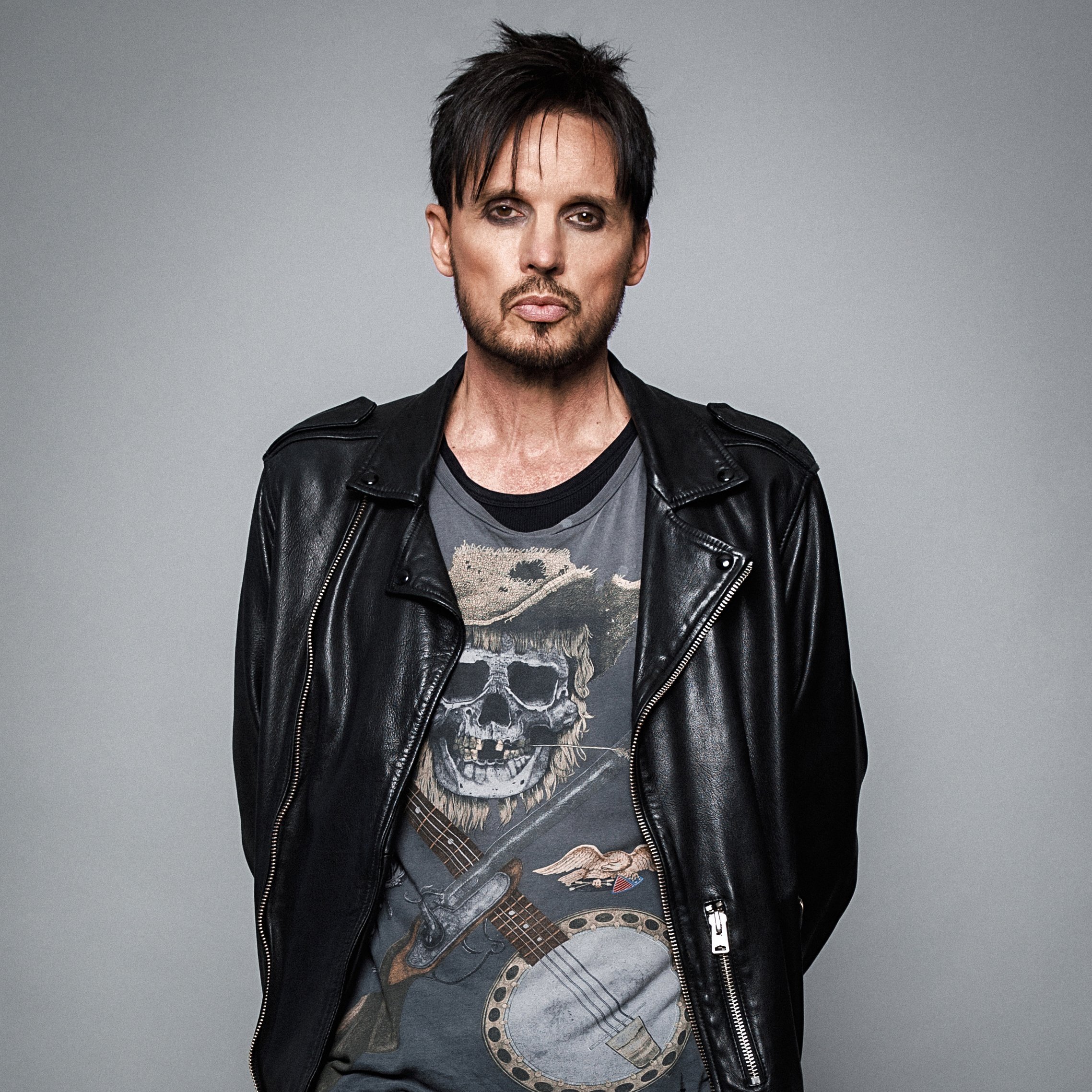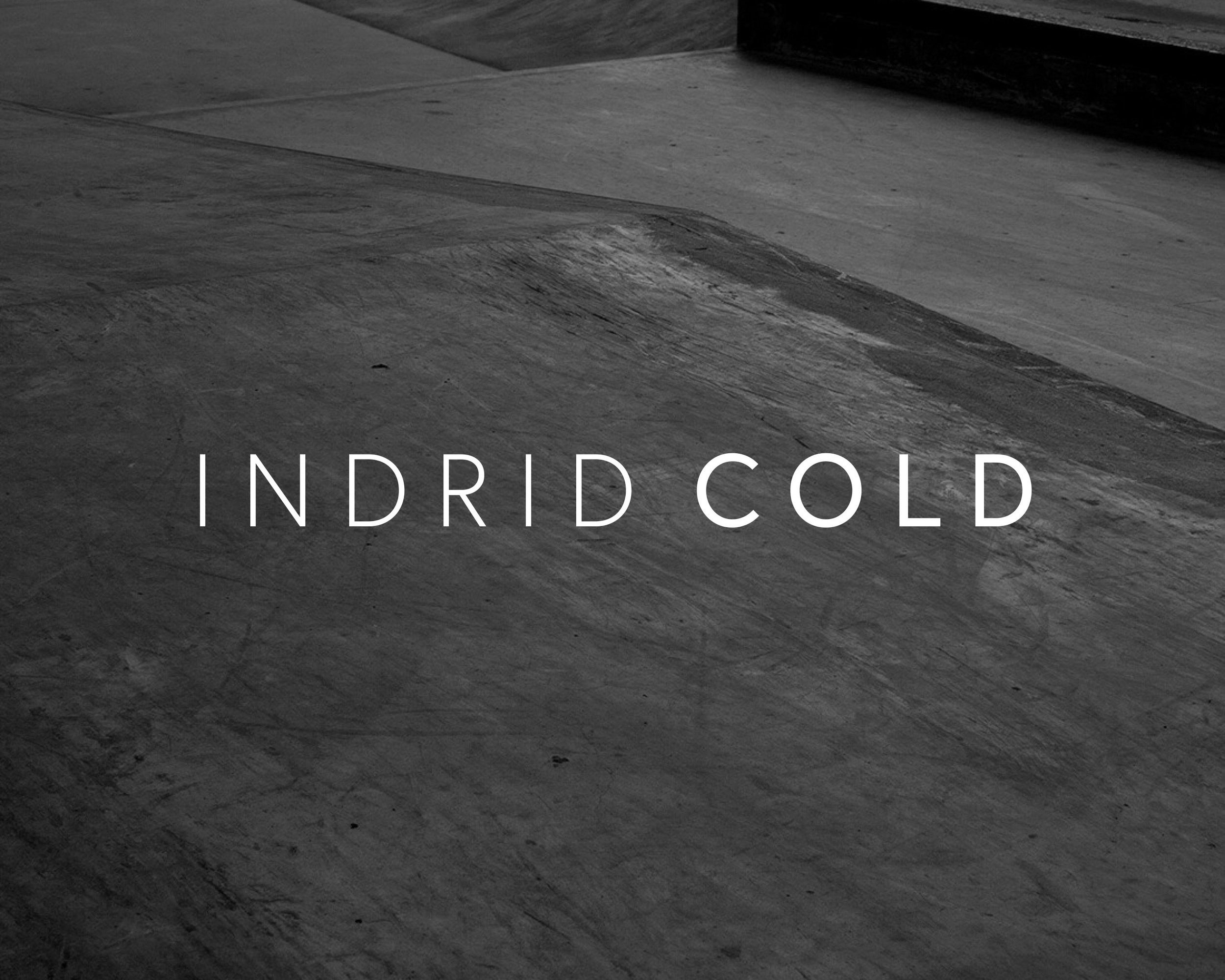TONN INTERVIEWS: MARY MCINTYRE
Image: Paul Marshall
Visual artist and TONN Founder, Mary McIntyre talks to Richard Anderson, of This is The Bridge, about the origins of her love of music, her motivations for starting a record label and the journey it has taken her on.
Richard: I guess we should start at the beginning. Would it be fair to assume that starting a label was an unexpected move?
Mary: Yes, absolutely. I don't think it's something that anyone would ever have expected of me. Having spent all my professional life working in the visual arts, as a fine artist without any direct connection with music, people always find it surprising that I started a record label. But to be honest, no one is more surprised than me. It’s not something I ever thought I’d be doing.
Richard: Can you remember how and why the idea came to you?
Mary: To be honest, I can’t say exactly why. The idea formed in my mind quite suddenly. It wouldn’t be an exaggeration to say it came about overnight. I literally woke up one morning and thought - maybe I should start a record label. But I suppose when you look at the constant presence that music has had throughout my life, considering that it’s been such a passion of mine from a very early age, perhaps it’s not so surprising that I went from listening to music, to taking on a more active role in it. As a teenager, when I first became interested in music, it quickly became a real passion that led me to develop a particular musical taste.
Richard: So, do you think, in some ways, it goes back to that period?
Mary: I think so. I can see how those early listening choices helped build the foundations for TONN Recordings. So when people ask me when I started label, I’m almost tempted to tell them that it started when I was 12 or 13, because the music that I listened to and learned to love back then, has acted as a series of reference points that have led to the music I’ve released on TONN.
Richard: Do you remember the very first record you ever bought?
Mary: Yes, I remember it very clearly, partly because of the album cover, which was striking. It was Tubeway Army’s ‘Replicas’.
Richard: How did you discover it?
Mary: Well even though I grew up in a small place in Northern Ireland, we were fortunate to have had two very good record stores in my hometown, which both had a surprisingly comprehensive and interesting stock of releases. That's where I started to buy my first records.
Richard: Had you heard Tubeway Army before?
Mary: I’d already heard one track from the album, it was in charts. So, I came across it through radio plays and TV appearances. I remember one particular early TV performance of Gary Numan, which stuck out for me at the time, because his manner of performing seemed so very different from all of the other artists that were on those TV chart shows.
Richard: Yes, he must have made a big impression on a lot of people.
Mary: Yes. Barely moving, not smiling and his vocal style, it was all so singular, bizarre even in comparison to the other acts. So, to say it caught my attention as a very young teenager, who was just discovering music for the first time, would be an understatement. But beyond the visual dynamic of it all, was something that had an even greater impact on me, Billie Currie’s synth.
The minute I heard it, that buzzing, cold metallic sound, I was hooked. I remember the TV camera kept homing in on close-ups of the synthesisers. I think I was transfixed. And shortly after my love of all things synth related was consolidated.
John Foxx’s ‘Burning Car’ was released, and I nearly wore out that 7” picture disc from playing it so much. I still can’t play it just once; I find that track addictive. To me John Foxx epitomised one of the most sophisticated figures in synth. His TV appearances in those 1980 chart shows was also a revelation. Dark suit, hand in pocket, with a fleet of synthesisers behind him. ‘Underpass’, ‘No-one’s Driving’, those early British TV performances seemed exceptional to me at the time, they still do.
Richard: What else were you listening to back then?
Mary: Once you buy one record, that one leads you to discover another and another, like a domino effect. So, I was also listening to Joy Division, Echo & the Bunnymen, OMD, David Bowie, Kraftwerk, Japan, Cabaret Voltaire, Bauhaus, The Fall and others.
But the record shops I was going to also had more obscure things from farther afield. They had a very good overseas section, with a lot of things that I wouldn't perhaps have discovered otherwise, because of course without the Internet, encountering things wasn't so straightforward.
But they stocked a lot of Japanese imports, or releases from Europe, bands from Germany and France. So, at an early age I also came across records by artists like the Honeymoon Killers and Palais Shaumburg for example.
Richard: I think that really highlights how important a good record shop is, doesn’t it. It was similar for me. They can be like little, local cultural institutions.
Mary: Absolutely. And also, TV programming at that time was much more experimental than it is now. There were a number of different magazine style TV programmes that focused on music, art, fashion. ‘The Tube’ on Channel 4, or ‘Riverside’ and ‘The Old Grey Whistle Test’ on BBC2, featured things like performances by Michael Clarke’s dance troupe in Leigh Bowery costumes, performing to music being played live by The Fall. So, it was possible back then to discover something like Einstürzende Neubauten on TV.
Richard: Actually, now you mention it, that’s how I first discovered Einstürzende Neubauten - on an early evening TV show.
Mary: It was fortunate that television programming at that point was keen to cover those things and spread the word. So, between well stocked record shops and some excellent music press coverage in those pre-Internet days, despite growing up in a small Island on the edge of Europe, looking back, I can see how as a teenager I was exposed to a lot of very interesting influences, which informed my early musical taste that has carried with me to this day.
Richard: Were there any local bands that you liked at the time? What was the scene like in Northern Ireland?
Mary: The local scene then was pretty dynamic. Ireland, north and south was heavily influenced by Post Punk. There was a real DIY approach, which sounded fresh and rough around the edges, it felt exciting. It would be hard to say that there was a sense of coherence to what was being produced in Ireland at that point, everything seemed to have a singular quality to it, from the theatricality of the Virgin Prunes, to the rawness of the Stiff Little Fingers, or the pop punk feel of the Undertones. There were also a lot of lesser known artists, Operating Theatre for example, who produced some amazing albums in the early 80s, ‘Rapid Eye Movements‘, ‘Miss Mauger’. They are just one example of a whole host of fantastic experimental artists making music in Ireland at that time.
Mary in 1988. Image: Adrian Doran
There was also a very vibrant live scene in Northern Ireland too, with a lot of good venues for gigs, particularly in the North Coast where I was from. My hometown had a university campus attached to it, with regular gigs going on in their student union and the student audience added to an already solid local scene. Even though the area was small, with so many bands and venues, there seemed to be a lot going on in music all the time.
In one of the seaside towns, next to where I grew up, there was an annual live music event called, ‘The Ligger’s Ball’, held in a local family owned Hotel. The entire hotel was given over to it, with numerous bands playing live in their ballroom. Looking back now, it was actually kind of incredible. Even though it was a fairly niche music scene, it was also popular and what was happening was well publicised, so it wasn’t hard to pick up on. A lot of artists from further afield also frequently played in Belfast, so I was fortunate to see many of the bands I loved play live first-time round, during that period.
Richard: How did you move into visual arts? What was your path in to it? Was it by accident or design? Did you study art?
Mary: At School I’d always gravitated towards the Arts subjects. All the way through my childhood and teenage years art was something I’d excelled at. People were constantly referring to me as being ‘artistic’ and it was true that whilst there were other subjects I enjoyed, history, literature, my aptitude for art as a child stood out. Whilst other friend’s parents were actively dissuading them from taking on Arts subjects at university, because they considered that a dead end professionally, I was fortunate that my parents took a completely different view, always supporting me in doing what I enjoyed. So, they encouraged me to take it further at university.
I wasn’t sure at the age of 18 what I wanted to do, I had no clear view on career paths. So although I was unsure where it would lead me, I decided to do a one year Foundation Course in Art & Design to see what it would be like to study art. From there, one thing led to another and although I initially thought I might eventually specialise in a design discipline, I was surprised instead to find myself gravitating towards the fine art studios at art college. Looking back, I’m very glad I did.
Studying art, being involved in a creative practice, it can be difficult at times and it can be strange, but there’s never a dull moment. The people you encounter, the things you see, the discussions you take part in, I feel lucky to have had that experience. After I left college and embarked on my art practice, I sort of stumbled into teaching art, again, quite unexpectedly. It wasn’t a job I’d ever considered doing. I’d only been out of college about two years when I became a fine art lecturer, so I started very young. But it soon became clear that I had an aptitude for teaching art and from that point, I’ve never looked back. I’m now running the post graduate fine art programme that I myself studied on. You might say there is a strange kind of symmetry in that.
At work in the studio, 2018. Image: Robert Anderson
Richard: TONN Recordings has a very distinctive visual aspect. It’s one of the things that first caught my attention and attracted me to the label. Do you think that’s related to your being a visual artist?
Mary: Perhaps. It certainly was a deliberate intention of mine when I started the label, to create a strong visual identity. So TONN’s aesthetic is something that I've cultivated since the label first began and it's something that I work hard to maintain.
Cover for ‘Perspectives Of Deception’
by Vehement Inversion
Image by Mary McIntyre
Richard: It's interesting then that even though you’re a photographer, your own images have only appeared on a few TONN releases. Is that also a deliberate choice?
Mary: When I started the label, I knew I wanted TONN’s visual identity to be strongly image based, so chose to do that through photography. But I also knew that I didn't want to use my own photography as the mainstay of TONN’s imagery.
I was very conscious of the fact that the label was being run by a visual artist and I didn't want to muddy the waters by orienting it around my own artwork. The label is there to promote the work of its artists, not myself.
tonn011 - ‘Play Bizarre’ by MADMOIZEL.
Richard: When you started it must have been a pretty sharp learning curve?
tonn001 - ‘Traveller’ by Canter, the label’s first vinyl release
Yes, I can honestly say that when I started the label, I had no clue where to begin. I had no contacts in music, wasn't connected to any music scene, had no funding set aside. I had absolutely no know-how in terms of the production of physical formats, like pressing vinyl. So, the whole thing was a complete unknown to me.
Richard: That kind of brings us back to that earlier question… what on earth made you do it?
Mary: That’s something I’ve often thought about myself over the last couple of years and I’ve wondered how it was I ever got past all of the apprehensions about starting a label, because I was acutely aware of knowing nothing about it.
But strangely, I think perhaps being a fine artist prepared me for it in a way that I couldn’t have anticipated. Largely because, as a fine artist, making art is an explorative process. You could say that it’s a process of asking questions through the work that you're experimenting with, rather than starting from a point of having any answers. Fine art, as an experimental process, teaches you to take risks it. Ultimately that involves not knowing how to do something, but making a start anyway and finding out as you go along, learning on the job as it were. I think that it's that sense of risk-taking which probably enabled me to begin the label without any prior experience.
tonn005 - ‘Broken Sculptures’ by This is The Bridge.
Essentially making art can be like a leap in the dark, starting new projects blind, but gradually bit by bit, day to day in the studio, exploring ideas, testing materials, and very often getting unexpected results. So, having been doing that in my art practice for 3 decades, that kind of experience has taught me to be intuitive, to go on my gut instinct. I think that aspect of being a fine artist probably equipped me for embarking on the label more than I would have realised. But I'm still surprised today to see how TONN has grown.
I still can't quite get my head around the fact that I do run a record label, especially when I look back over all of the artists I've worked with and all of the music that TONN has released. Sometimes, if I take an overview of everything that's happened through TONN Recordings, it’s hard to believe I started from point zero.
Mary with fellow artist Philip McCrilly.
Richard: Given what you have learned, is there anything that you would say to someone thinking of starting a record label?
Mary: It's hard to gauge to what degree my own experience has been different or similar to other record label owners, but for me personally, I think the one thing I would say about running a record label, is that - if it's not something you feel wholly passionate about, then it could become extremely exhausting and stressful. It involves a massive amount of multi-tasking in juggling different projects. Working across so many artists’ releases is a mammoth amount of work. But the thing that’s kept me motivated throughout all of that work, is feeling so passionate about the music on TONN Recordings. And in order to safeguard that passion, it's really vital that I love the music I release. That's been my motivation throughout the last four years on the label and will continue to be, because I really believe that as soon as someone starts chasing numbers, working with artists because they seem to be popular, or trying to put out music that they think will appeal to an audience, that’s the worst possible motivation. The minute a person starts to do something like that, is the death knell on it. I could never work that way. So, I never stop to think - is there an audience for this? I never ask myself - will people like this? Those things never enter my head, or come into play for me, because I only ever release the music I love and work with artists because I believe in what they're doing. So, I think that's the one thing that I would say to someone thinking of starting a record label, trust your own musical taste, release what you love, never take anything else into consideration.
Richard: You’ve mentioned how much work is involved in running the label, but what do you most enjoy about it?
Mary: The best moments for me are when unexpectedly an artist on TONN sends me a demo, late at night, out of the blue and I get to hear something amazing for the very first time. Hearing brand new music that you love and that you are going to have the pleasure of releasing on your record label, is the closest thing to pure uncomplicated joy. There is no better feeling.












